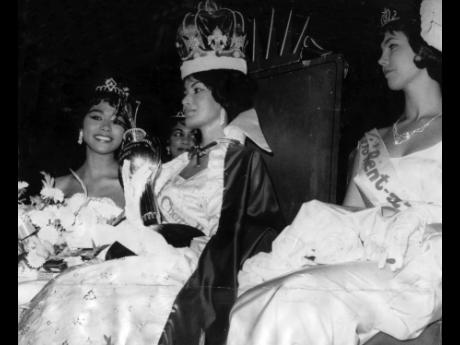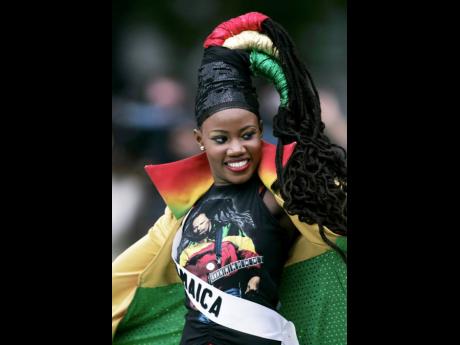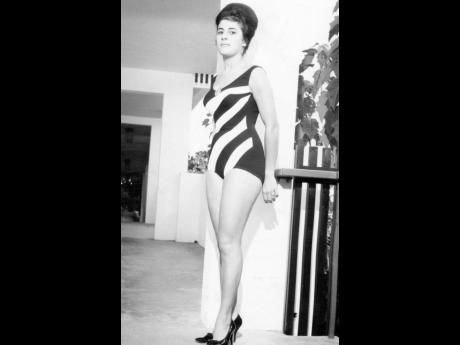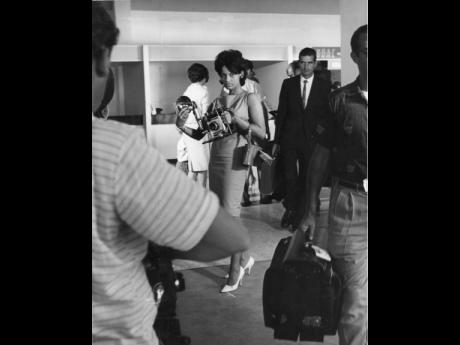Miss Universe eliminates age limit - this and other firsts
Last week, the Miss Universe organisation announced that adult women of all ages over 18 years old will be allowed to participate in the global beauty pageant, come 2024. Thus, removing the age limit of 28 years old. The announcement was made by 29 year-old R’ Bonney Gabriel, the current Miss Universe, who, coincidentally, is the oldest Miss Universe ever crowned. As she stated to reporters during this year’s staging of New York Fashion Week, “Age is not a barrier to a woman’s ability to compete and achieve greatness.” The removal of the age restriction is one of many developments within the pageant in recent years to challenge the status quo of women who are deemed “beautifully confident”.
The Miss Universe pageant began in 1952 and began as a marketing strategy when Miss America 1951, Yolande Fox, refused to tour the United States in bathing suits. According to her biography on the Miss America website, she stated, “I’m an opera singer, not a pin-up”. In response, the swimwear company, Catalina Swimwear, created their own pageant - Miss Universe - where the first staging was held in California and won by Miss Finland.
It would take almost a decade for Jamaica to have its first contestant in the pageant. In 1961, Marguerite LeWars became the first-ever Miss Jamaica Universe. A year later, she starred in the first-ever James Bond film, Dr No, in the role of a photographer named Annabel Chung. Despite LeWars not winning, she helped blaze a trail for the many other Jamaican women who have competed in the pageant. But this was not without controversies.
In 1967, Jamaica would have its first disqualification in the pageant. In that year, the Miss Jamaica contestant, Elham Warwar, was disqualified. As The Gleaner, reported on July 12, 1967, Ms Warwar was disqualified because “she did not appear in a contest where she had been chosen to represent Jamaica”. According to the article, Ms Warwar told the organiser that the documents proving her eligibility were en route to Miami, where the pageant has been held, but, when her sponsor showed up without the papers, a decision was made. Then executive director of the pageant, Herbert K. Landon, stated, “the rules must be obeyed”. That year’s staging also saw two women being disqualified because they did not meet the age eligibility.
Gender inclusivity
Unlike the events of 1967, disqualification at the different franchises of Miss Universe have allowed for instant changes to the eligibility of women who enter the contest. In 2012, Jenna Talackova, a contestant in Miss Universe Canada, was disqualified for being a transgender woman. After waging a legal battle, the Miss Universe franchise, then owned by Donald Trump, ended its ban on transgender contestants, thus broadening the gender inclusivity of the pageant. In 2018, Angela Ponce, Miss Spain, became the first transgender woman in the Miss Universe pageant. The pageant is now owned by Thai entrepreneur Anne Jakkapong Jakrajutatip, who is a transgender woman. She is the first woman to own the franchise.
Then, in May 2021, Andrea Meza, Miss Universe 2020, came under fire on social media when persons unearthed a photo of her in a wedding dress. Soon after, Meza stated that the photo was from a photo shoot she had done when she was a tourism brand ambassador in Chihuahua, in her home country of Mexico. Almost a year later, in August 2022, the Miss Universe franchise announced that mothers and married women will be allowed to enter the pageant. In an exclusive interview with Insider about the rule change, Meza stated, “Just like in any other industry, women are capable of having demanding leadership positions without or with a family, it is no different in this case”.
Another noticeable change throughout the years is the judging criteria. In the mid-2010s, the fourth-wave feminism movement challenged the pageant where the contest began to value communication, intelligence, and other talents besides a woman’s physical beauty. Unspoken rules have also been broken throughout Miss Universe’s history, where contestants have challenged the status quo. In terms of race, the first black woman to win the contest was in 1977, when Janelle Commissiong of Trinidad and Tobago took the crown. Almost two decades later, another black woman from Trinidad and Tobago took the title - Wendy Fitzwilliam. Cisgender women of the LGBTQA+ community have also made strides in the pageant. In 1991, Julia Lemigova, representing the Soviet Union, was the runner-up. Today, she is married to a tennis great, Martina Navratilova. Having reigned for a year, Miss Universe Spain, Patricia Yurena Rodríguez, revealed in 2014 that she was in a relationship with a woman. Then, in 2019, Myanmar model Swe Zin Htet became the first openly lesbian contestant in the international Miss Universe pageant. Earlier this year, the Miss Universe pageant changed its eligibility rule to allow married or divorced women and women who are pregnant or have children to compete.
Jamaicans have also made their own history at the pageant that has challenged the status quo. In 2005, Terri-Karelle Reid, née Griffith, represented Jamaica at Miss World and was one of the first black women to rock an afro. Later, in March 2007, Zahra Redwood created history when she became the first Rastafarian to be crowned Miss Universe Jamaica. With her flowing dreadlocks, she blazed a trail for other women, who are not necessarily members of the Rastafari, but who wore their hair in locs to compete in global beauty pageants. This includes Sanneta Myrie, Miss World Jamaica 2015, who not only placed in the top five but made history as the first contestant to wear dreadlocks at the other prestigious global beauty pageant.
Lasting impression
The hair politics continued in 2015, when Miss Universe Jamaica 2015, Kaci Fennell, competed with her hair in a pixie cut. She was named the fourth runner-up. As she stated then, “I don’t have long tresses like everyone else. I’m just representing myself, and that’s what beauty pageants are all about. You don’t have to look a certain way ... and I feel like I represent that.” Fennell’s words would propel another Miss Universe Jamaica winner a few years later. This time, it was Davina Bennett, who was named second runner-up during the 2017 staging. She made a lasting impression when she competed with her hair in an afro. As she reflected on her win in a November 2017 Instagram post, she stated, “I did not win but I got what I was seeking. I won the hearts of many, I got to highlight deaf awareness, I stand as the first afro queen to have made it thus far”.
The trail blazed by Jamaican women would intersect when Zozibini Tunz from South Africa, with her short natural hair, became the first woman to win the global pageant with natural afro-textured hair. Tunz’s win as Miss Universe 2019 was also a rare occasion as the other prestigious beauty pageant, Miss World, was also won by a black woman. This time, it was Jamaica’s Toni-Ann Singh, who won Miss World 2019.
Given recent developments to the age limit of the Miss Universe franchise, we look to see how this will impact beauty pageants locally and globally in the near future.
J.T. Davy is a member of the historical and political content collective, Tenement Yaad Media, where she co-produces their popular historical podcast, Lest We Forget. She is also a writer at the regional collective, Our Caribbean Figures. Send feedback to jordpilot@hotmail.com and entertainment@gleanerjm.com.




